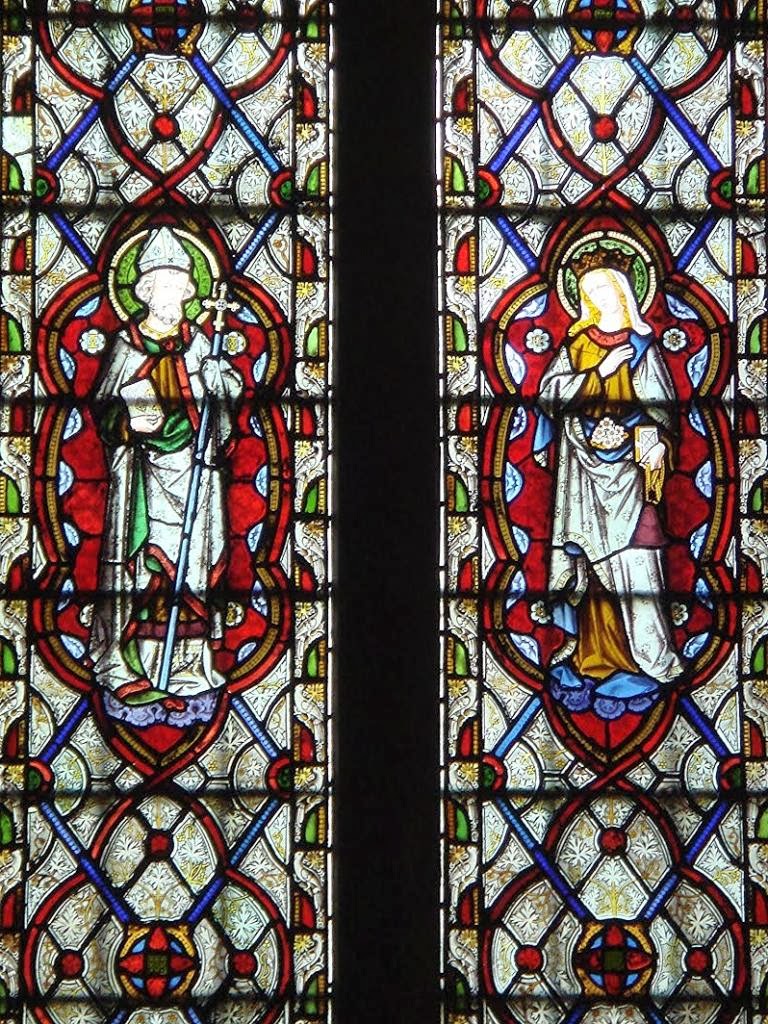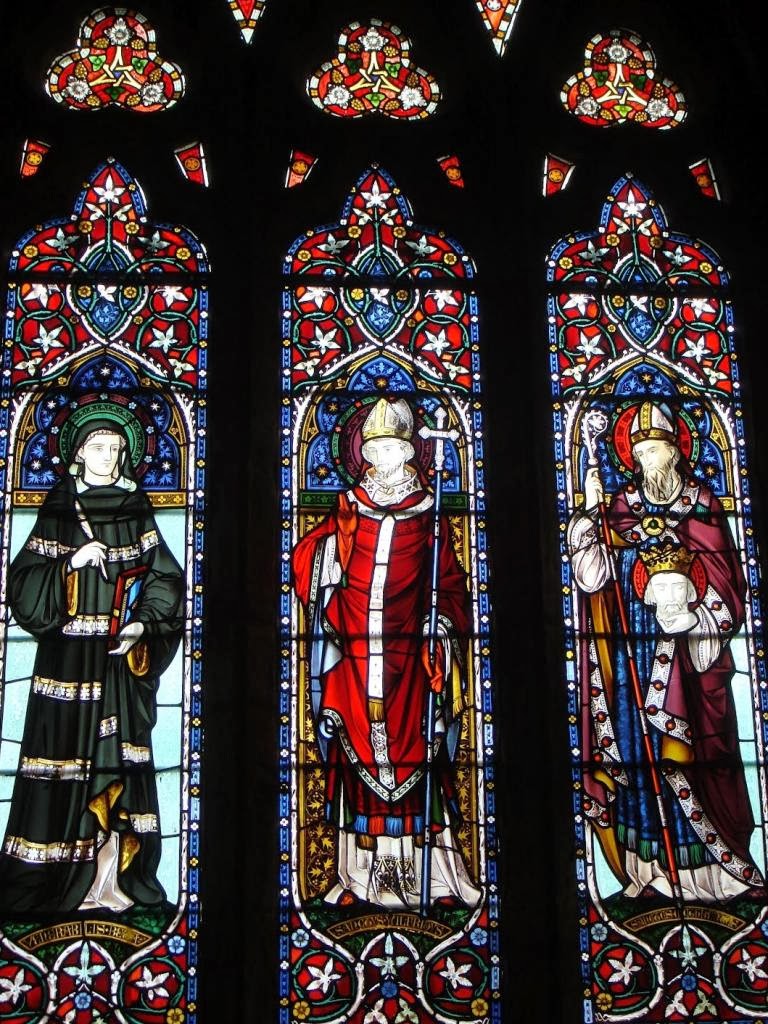This is a poem from Harley 2253, one of the most famous collections of medieval lyrics. The pun in the first line is made possible by the fact that Middle English 'wayle', etymologically linked to Old Norse
val 'choice', means 'one chosen for virtue' or 'a paragon of excellence' (
here's proof I didn't just make that up; it's also in the OED under
wale n.2). I can't imagine you could get away with calling a woman a 'wayle' as a compliment nowadays, but rest assured, it is supposed to be a good thing...
1. A wayle whyt ase whalles bon,
A grein in golde that godly shon,
A tortle that min herte is on,
In tounes trewe,
Hire gladshipe nes neuer gon
Whil Y may glewe.
2. When heo is glad
Of al this world na more Y bad
Then beo with hire myn one bistad,
Withoute strif.
The care that Icham yn ybrad
Y wyte a wyf.
3. A wyf nis non so worly wroht;
When heo ys blythe to bedde ybroht
Wel were him that wiste hire thoht,
That thryuen ant thro!
Wel Y wot heo nul me noht;
Myn herte is wo.
4. Hou shal that lefly syng
That thus is marred in mournyng?
Heo me wol to dethe bryng
Longe er my day.
Gret hire wel, that swete thing
With eyen gray.
5. Hyre eye haueth wounded me, ywisse,
Hire bende browen that bringeth blisse.
Hire comely mouth that mihte cusse,
In muche murthe he were;
Y wolde chaunge myn for his
That is here fere.
6. Wolde hyre fere beo so freo
Ant wurthes were that so myhte beo,
Al for on Y wolde yeue threo
Withoute chep.
From helle to heuene ant sonne to see
Nys non so yeep
Ne half so freo.
Wo-se wole of loue be trewe, do lystne me.
7. Herkneth me, Y ou telle,
In such wondryng for wo Y welle,
Nys no fur so hot in helle
Al to mon
That loueth derne ant dar nout telle
What him ys on.
8. Ich vnne hire wel ant heo me wo;
Ycham hire frend ant heo my fo;
Me thuncheth min herte wol breke atwo
For sorewe ant syke.
In Godes greting mote heo go,
That wayle whyte.
9. Ich wolde Ich were a threstelcok,
A bountyng other a lauercok,
Swete bryd!
Bituene hire curtel ant hire smok
Y wolde ben hyd.
As you can see, the rhyme-scheme of this poem, although smoothly handled, varies apparently without reason in verses 6 and 9; it's been suggested that the verses have somehow got out of order at some stage in the manuscript copying, and that perhaps verse 7 (beginning 'Herkneth me', a common opening to a poem) was originally supposed to come first.
A very literal translation is available
here, but here's my version:
1. A wale white as whale's bone,
A grain of gold that goodly shone,
A turtle-dove my heart is set on,
Among all others, truly;
Her happiness will never pass away
While I can make songs.
2. When she is glad,
I ask no more in all this world
Than with her to be placed alone,
Without any trouble.
The sorrow that besets me
I attribute to a woman.
3. No woman is so worthily wrought;
When she gladly to bed is brought
Lucky he who knows her thought,
That wonderful one!
Well I know she does not want me;
My heart sorrows.
4. How may a man joyfully sing
Who is so mired in mourning?
She will me to my death bring
Long before my time.
Greet her well, that sweet thing
With grey eyes.
5. Her eyes have wounded me, truly,
Her arched brows which bring bliss;
He who might her fair mouth kiss
Would be full of joy!
I would change my lot for his
Who is her companion.
6. If her partner would make so free
And things were as they ought to be
For that one girl I would give three
Without haggling.
From hell to heaven and sun to sea
There is none so wise
Nor half so generous.
He who will be true in love, listen to me.
7. Listen to me, I tell you,
I suffer in such distress of woe,
There is no fire so hot in hell
As for the man
Who loves secretly and dares not tell
What the matter is.
8. I wish her well, and she me woe;
I am her friend and she my foe;
It seems to me my heart will break in two
For sorrow and distress.
In God's blessing may she go,
That pale beauty.
9. I wish I were a song-thrush,
A bunting or a lark,
Sweet bird!
Between her kirtle and her smock
I would like to be hidden.
 This song is by Burns, of course; its supremely jolly tune can be heard all over youtube, but I'm partial to this version. It has seemed appropriate over the last few sunny days of September, with their fiery twilights.
This song is by Burns, of course; its supremely jolly tune can be heard all over youtube, but I'm partial to this version. It has seemed appropriate over the last few sunny days of September, with their fiery twilights.




































